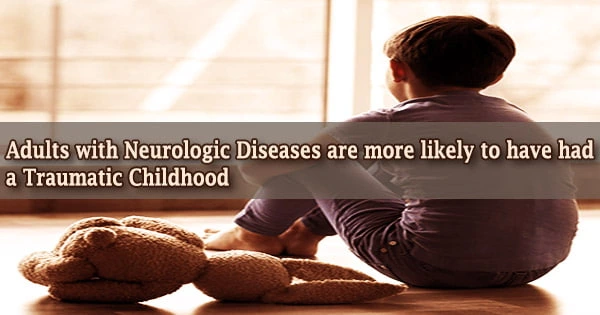According to a study published in the September 22, 2021, online issue of Neurology® Clinical Practice, an official journal of the American Academy of Neurology, adults with neurologic conditions are more likely than the general population to have had negative childhood experiences such as abuse, neglect, or household dysfunction.
The study does not establish that such experiences induce neurologic disorders. It just demonstrates a link between the two.
Epilepsy, learning impairments, neuromuscular problems, autism, ADD, brain tumors, and cerebral palsy, to name a few, are all examples of neurological disabilities. Some neurological disorders are congenital, meaning they appear before birth. Tumors, degeneration, injuries, infections, and structural flaws can all create other problems.
All neurological disabilities are caused by injury to the nervous system, regardless of the cause. The amount to which communication, vision, hearing, movement, and cognition are damaged depends on where the injury occurs.
“Traumatic events in childhood have been linked in previous studies to a higher risk of heart disease, diabetes, riskier health behaviors like smoking and drug use, and decreased life expectancy,” said study author Adys Mendizabal MD, of the University of California Los Angeles and a member of the American Academy of Neurology.
“They have also been linked to a higher risk of headaches, but for many other neurologic conditions, little is known. Our study found that people with neurologic conditions like stroke, headache, and epilepsy were more likely to have experienced abuse, neglect, or household dysfunction as children when compared to the U.S. population.”
A total of 198 participants from a neurology clinic took part in the trial. Each participant filled out a questionnaire about traumatic childhood events and was tested for anxiety and depression. Researchers also looked at medical data to see how frequently study participants went to the ER, were admitted to the hospital, or called their clinic.
Traumatic events in childhood have been linked in previous studies to a higher risk of heart disease, diabetes, riskier health behaviors like smoking and drug use, and decreased life expectancy.
Adys Mendizabal MD
The questionnaire has a range of scores from 0 to 10. Scores of four or more were deemed excellent. The prevalence of high scores in the study group of people with neurologic problems was compared to the estimated prevalence in the general population of the United States.
They discovered that 24 percent of the participants in the research had elevated scores, compared to 13 percent of the general population. After controlling for age, gender, and race/ethnicity, researchers discovered that study participants who scored high on the questionnaire used healthcare services frequently.
They were 21 times more likely than people with low grades to have used emergency department services frequently in the previous year, with four or more visits. They were five times more likely to have been hospitalized three or more times in the previous year.
They were also three times more likely to call their clinic 15 or more times in the previous year. These findings, according to Mendizabal, show that those who had a lot of bad childhood experiences may have higher neurologic symptoms, disability, or medical demands.
Participants with high scores were six times more likely to have another medical disease and five times more likely to have a psychological disorder in addition to their neurologic condition.
They were also seven times more likely to experience severe depression and four times more likely to suffer from severe anxiety.
“Early recognition of these high adverse childhood experiences in people with neurologic conditions may be a way to improve their health,” said Mendizabal.
“Appropriate referral to social work and behavioral health resources may provide people with support that may reduce their need for health care and improve their neurologic health.”
















